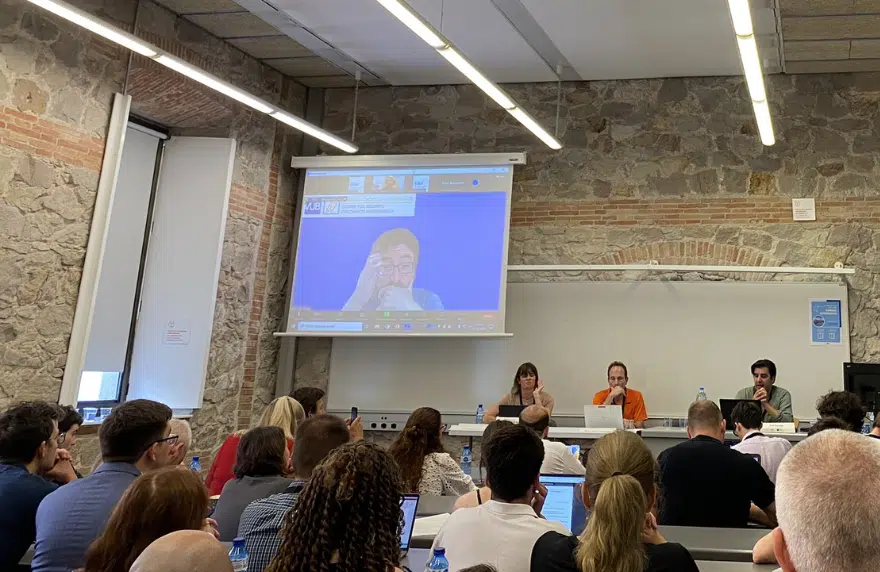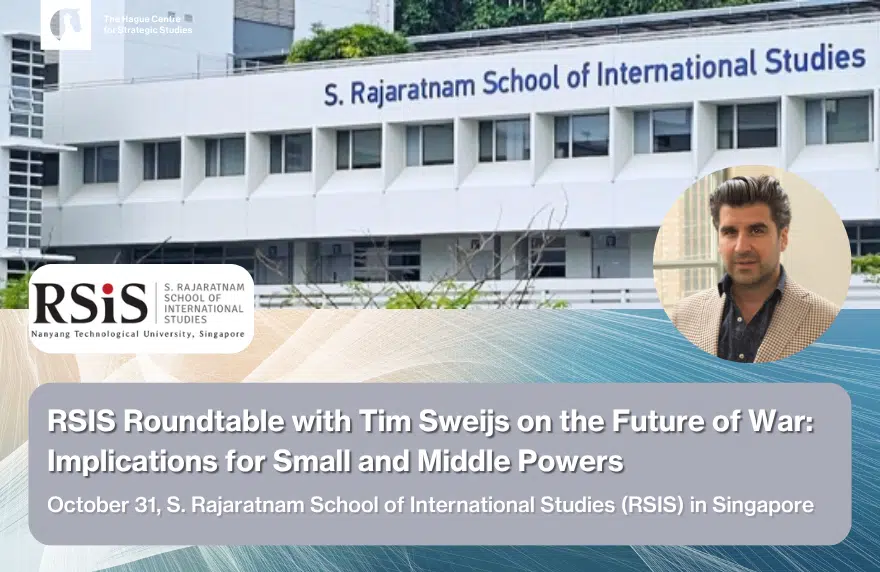Coercive statecraft refers to the threat or use of force in order to get the target of coercion to comply with a set of demands. Throughout history, states have used a variety of coercive strategies to compel both adversaries and allies. These strategies include the threat of use of force for the purpose of coercing adversaries or allies, the actual use of military force to achieve political objectives, the covert use of force as a tool of statecraft, as well as the deployment of an assortment of non-military measures. State coercion thus encompasses military, political, economic, diplomatic, and – these days also – cyber measures.
On November 19, a stellar panel of distinguished experts will discuss and debate the contemporary implications of coercive statecraft in the specific context of the Ukraine-Russia war, at ‘The Dynamics of Contemporary Coercive Statecraft’ Roundtable, taking place at Leiden University’s The Hague Campus.
- Date: Tuesday 19 November 2024
- Time: 17:00 – 18:30
- Location: Wijnhaven, Turfmarkt 99, 2511 DP The Hague
- Room: 2.02
This event is open to all. Please register via this registration link if you wish to attend this event.
Panelists:
Dr. Peter Viggo Jakobsen is a professor at the Institute for Strategy at the Royal Danish Defence College, and a professor (part-time) at the Center for War Studies, University of Southern Denmark. He has written extensively on civil-military cooperation and the integrated approach, coercive diplomacy, NATO, peace and stabilisation operations, the UN and the use of military force. He has been an advisor and consultant for several governments and international organisations, and frequently comments on defence and security issues in international media. He holds a PhD from the University of Aarhus, Denmark, in international relations.
Dr. Erica Borghard Lonergan is an Assistant Professor in the School of International and Public Affairs at Columbia University. Previously, Erica held several positions at the United States Military Academy at West Point. She has also held positions as a senior fellow at the Carnegie Endowment for International Peace and the Atlantic Council. Erica has published widely on cybersecurity, grand strategy, military affairs, and international security. Her book, Escalation Dynamics in Cyberspace, was recently published at Oxford University Press. Additionally, Erica has published articles in top-tier academic journals, including American Political Science Review, Security Studies, Journal of Strategic Studies, and Strategic Studies Quarterly. She has also written policy articles for a number of think tanks, as well as articles in venues such as Foreign Affairs, War on the Rocks, The Washington Post, The Wall Street Journal, Wired, and Lawfare. Beyond her academic and research appointments, Erica has an extensive background in strategy and policy.
Dr. Tim Sweijs is the Director of Research at The Hague Centre for Strategic Studies (HCSS) and a Senior Research Fellow at the Netherlands’ War Studies Research Centre of the Netherlands Defence Academy. He is the Scientific Advisor to the Secretariat of the Global Commission on Responsible Artificial Intelligence in the Military Domain, an initiative of the Dutch Ministry of Foreign Affairs. Dr. Sweijs his work is multidisciplinary in nature and straddles political science, science and technology, strategic studies, and war studies. He is the initiator, creator and author of numerous books, articles and studies in strategic foresight, interstate coercion, contemporary and future war, emerging technologies including but not limited to AI, international norms and regimes, alliances and alignments, defence and national security planning for small and middle powers, and strategy and capability development.
Discussant:
Dr. Babak Rezaee Daryakenari is Senior Assistant Professor of International Relations at the Institute of Political Science, Leiden University in The Netherlands. His research broadly focuses on political violence and conflict resolution. Babak is primarily interested in studying the dynamics of dissent-repression. Currently, he is working on how the Internet affects the dynamics and outcomes of state-dissident online and offline interactions. He also studies different aspects and consequences of foreign interventions such as economic sanctions during civil conflicts. On the methodology side, he is working on using machine-learning algorithms and data mining methods to improve the forecasting power of conflict models.
Chair:
Dr. Nicolas Blarel is an Associate Professor of International Relations at the Institute of Political Science, Leiden University in The Netherlands. He studies foreign and security policy-making, the politics of power transition in the international order, the politics of migration governance, and the international politics of South Asia. He has also recently co-written on the EU’s Indo-Pacific strategy and maritime security.







